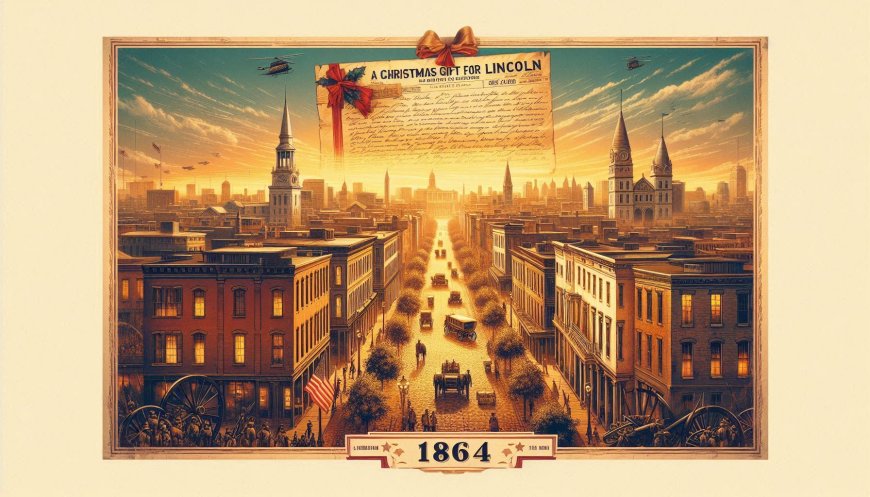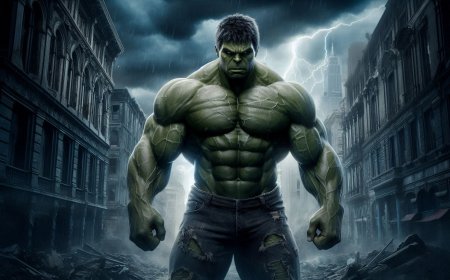A Christmas Gift for Lincoln: The Capture of Savannah
Explore the remarkable story of General Sherman's 'Christmas gift' to President Lincoln—the capture of Savannah in 1864 during the Civil War. Learn how this pivotal moment shifted the tide of the war and symbolized hope, strategy, and preservation.

In the twilight of 1864, as the Civil War raged across a divided nation, General William Tecumseh Sherman led his infamous "March to the Sea," carving a path of destruction through Georgia. His goal was clear: to demoralize the Confederacy and cripple its ability to wage war. From the ashes of Atlanta to the smoldering towns along the way, Sherman’s forces left devastation in their wake. But when they reached the majestic city of Savannah, something remarkable happened. Instead of burning it to the ground, as he had done elsewhere, Sherman made a choice that would change the course of history.
Savannah, Georgia, with its cobblestone streets and stately homes, cast a spell on Sherman. Unlike the war-torn landscapes he had left behind, Savannah’s beauty and strategic importance prompted a different course of action. Sherman saw in the city not just a Confederate stronghold, but an opportunity. In a moment of military brilliance and humanity, he spared Savannah from destruction.
On December 22, 1864, Sherman sent a telegram to President Abraham Lincoln with a message that would reverberate through history: “I beg to present you as a Christmas gift the city of Savannah, with one hundred and fifty heavy guns and plenty of ammunition, also about twenty-five thousand bales of cotton.” This simple, yet profound gesture symbolized more than just the capture of a city—it represented the shifting tide of the war, and a glimmer of hope for a nation yearning for peace.
A City Spared, A Nation Changed
The fall of Savannah marked a pivotal moment in the Civil War. As one of the South’s key ports, its capture dealt a devastating blow to Confederate supply lines. With Savannah under Union control, the Confederacy’s access to vital resources was further weakened, tightening the noose on a rebellion already reeling from loss after loss.
But Sherman’s decision to spare the city had a deeper significance. Savannah became a symbol of Union strength, but also of restraint and preservation in a war defined by destruction. Sherman’s march had left a trail of ruin in its wake, but in Savannah, he saw an opportunity to send a message: while the Union would fight fiercely to preserve the nation, it would not destroy all that was beautiful or redeemable in the South.
A Christmas Gift of Hope
For Lincoln, the capture of Savannah was more than just a military victory—it was a gift of hope during a dark and uncertain time. As the war dragged on and casualties mounted, the Union needed a symbol of progress and triumph. Sherman’s telegram offered just that. It boosted morale in the North and signaled that the war was turning decisively in the Union’s favor.
Beyond the immediate military gains—the heavy artillery and precious cotton that could be used to support the Union’s efforts—Sherman’s gift was a reminder that the end of the conflict was near. The South’s defeat was no longer a question of “if,” but “when.”
The Legacy of Savannah’s Capture
The capture of Savannah in December 1864 stands as a critical turning point in the Civil War, not just for its strategic significance, but for the symbolic power it held. The city’s preservation amidst the devastation of Sherman’s march set it apart as a rare instance where destruction gave way to preservation.
In the months that followed, Sherman’s march would continue, further crippling the South’s ability to resist. And just a few short months after the fall of Savannah, the Confederacy would surrender, bringing an end to one of the darkest chapters in American history.
Sherman’s Christmas gift to Lincoln was more than just a city—it was a moment of hope in a war-weary nation, a testament to the power of strategy, and a reminder that even in the darkest of times, mercy and wisdom could shape the course of history.
What's Your Reaction?






























































































